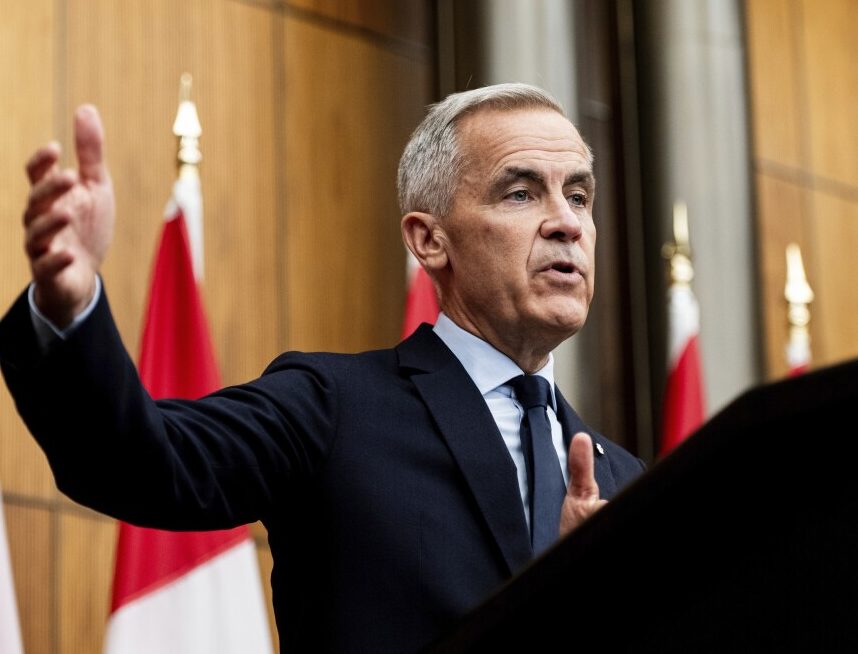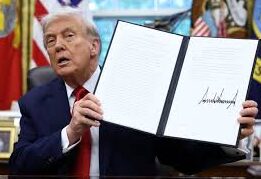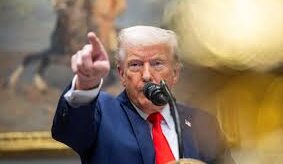Canada will lift a large number of retaliatory tariffs on U.S. imports and push ahead with talks on a new trade and security deal, Prime Minister Mark Carney said Friday.
Tariffs on American autos, steel, and aluminum will stay in place for now, he added at a press conference.
Carney said the U.S. recently assured Canada it would not impose tariffs on goods covered by the U.S.-Mexico-Canada Agreement (USMCA). Calling that a positive signal, he announced that Canada will now drop all its tariffs on U.S. goods that fall under the trade pact.
“Canada and the U.S. have now re-established free trade for the vast majority of our goods,” Carney said, pointing out that Canadian exports still face relatively low tariffs compared with other countries.
The Canadian dollar rose after the announcement.
Talks on a broader trade and security partnership between Ottawa and Washington have been ongoing for months, but negotiators remain far from a deal. Canada and China are the only countries that slapped counter-tariffs on the U.S., something that frustrated the Trump administration.
Carney said he spoke with Donald Trump on Thursday. Asked if the U.S. president suggested that dropping tariffs would help restart talks, Carney replied, “Yes.”
Trump, speaking later to reporters in the Oval Office, welcomed the move. “We are working on something. We want to be very good to Canada. I like Carney a lot,” he said.
Carney came to power in April vowing to stand firm against Trump’s tariffs but has since softened his stance. In June he scrapped plans for a digital services tax opposed by U.S. tech companies, and in July he backed off threats of new sanctions if no deal was reached by August 1.
He has kept in place a 25% duty on U.S. steel and aluminum after Trump doubled tariffs on the same Canadian products to 50%.
The previous Liberal government under Justin Trudeau had gone further, hitting C$30 billion ($21 billion) worth of U.S. goods with 25% tariffs in March 2024 after Trump’s initial duties. The broader retaliation plan was set to target C$155 billion in imports, though most of that was delayed.
Despite the concessions, a breakthrough with Washington may not be close. “Getting to a final deal isn’t going to be easy. The list of U.S. demands is long,” said Brian Clow, a former senior adviser on U.S. relations in Trudeau’s office.
Carney said Canada now needs a more moderate approach. “Let’s be clear, we have the best deal of anyone in the world right now. Nobody has a deal with the United States that they used to have.”
The government will continue to focus on key sectors still under tariffs, including steel, aluminum, autos, and lumber. Preparations are also beginning for the six-year review of the USMCA, scheduled for July 2026.
Business leaders urged the government to make securing a strong USMCA renewal its top priority. “While there is more work to be done to resolve tariffs in strategic sectors, Canada’s priority must be the successful review and renewal of the U.S.-Mexico-Canada Agreement,” said Goldy Hyder, president of the Business Council of Canada.
Politically, the move could be risky for Carney. His minority Liberal government depends on opposition parties to survive confidence votes. Conservative leader Pierre Poilievre accused him this week of being too soft in dealing with Washington.






